Top 10: Slack Alternatives
Updated: July 31, 2023
Slack alternatives are communication and collaboration platforms that provide similar functionalities to Slack but may offer unique features and capabilities to cater to different user preferences and business needs. These alternatives often include real-time messaging, file sharing, and integrations with various business tools. Some popular Slack alternatives include Microsoft Teams, which seamlessly integrates with other Microsoft productivity apps, and Discord, which has a strong focus on gaming communities and voice chat. Other alternatives like Mattermost and Rocket.Chat offer self-hosted solutions, providing organizations with greater control over their data and security. Depending on their requirements, users can choose from a range of Slack alternatives that align better with their collaboration needs, team size, and industry.
Some of the most popular slack alternatives are listed below.
See also: Top 10 Team Messaging platforms
See also: Top 10 Team Messaging platforms
2023. ByteDance’s Slack-like tool generated $100M in 2022
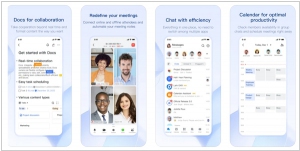
Feishu, the workplace collaboration app developed by ByteDance, achieved an annual recurring revenue of over $100 million in the previous year. Feishu, known internationally as Lark, is a comprehensive work communication messenger that offers convenient features such as automatic notetaking for video calls, shared calendars, and collaborative document editing. Towards the end of 2021, the workplace tool was designated as one of ByteDance's six individual business groups, signifying its strategic significance within the company. The other business groups at ByteDance include TikTok, Douyin, Dali (education), BytePlus (B2B AI and data infrastructure), and Nuverse (video games).
2020. JANDI (the Slack of Asia) raises $13M
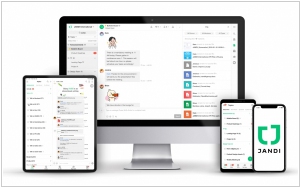
As Slack strengthens its presence in Asia, Toss Lab, a South Korea-based company and the creator of the enterprise collaboration platform JANDI, is positioning itself as a formidable competitor by raising $13 million in a Series B funding round. JANDI has established itself as the leading collaboration platform in Japan and Taiwan. Its user base spans across small to mid-sized businesses as well as large enterprises with thousands of employees. Notable clients of JANDI include LG CNS (the IT services subsidiary of a Korean conglomerate), Nexen Tire (a Korean tire manufacturer), and Lexus. Toss Lab reports impressive revenue growth of over 100% in the past three years.
2019. Beekeeper raises $45M to become the ‘Slack for non-desk employees’
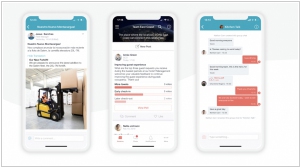
Beekeeper, a startup based in Switzerland and the U.S., has successfully secured $45 million in Series B funding. Beekeeper offers a mobile-first communications platform tailored for employers who need to engage with blue-collar and service-oriented workers. The platform specifically targets non-desk employees in industries such as hospitality, manufacturing, and retail. Beekeeper's innovative solution aims to replace outdated communication methods like pen and paper, as well as consumer messaging apps like WhatsApp, with a more efficient and streamlined approach. By prioritizing mobile accessibility, Beekeeper enables effective and seamless communication for workers in various industries.
2018. Slack is buying, and shutting down HipChat and Stride
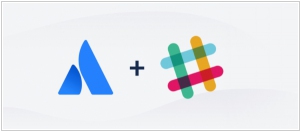
Slack has made the decision to acquire and subsequently discontinue Atlassian's workplace group chats, HipChat and Stride, both of which are direct competitors to Slack. As part of this acquisition, users of HipChat and Stride will be transitioned to Slack. HipChat initially entered the market in beta form back in 2009, predating Slack's debut in 2013. During the intervening years, HipChat held a significant presence in the industry, leading to Atlassian's acquisition in March 2012. However, Slack quickly gained popularity, surpassing HipChat for various reasons, such as a wider array of third-party integrations, a better reputation for uptime, and more effective marketing strategies. In September 2017, Atlassian revamped its chat platform and rebranded it as "Stride," but it was unable to match Slack's momentum. Ultimately, Slack's acquisition of HipChat and Stride signifies its continued dominance in the workplace communication landscape.
2018. Zoho Cliq integrates with Zapier
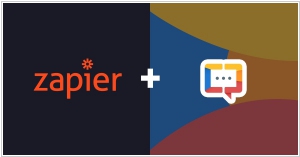
With the new integration of Zoho Cliq, Zoho's alternative to Slack, with Zapier, you're on track to achieve this with just a few zaps. You have the ability to create customized Zaps that link your favorite apps, even if they don't have pre-existing integrations. Zapier enables connections between over 1000 web apps, and you can seamlessly integrate Cliq with any of these apps to enhance efficiency and save time. For instance, by setting up a Zap between Cliq and Zendesk, you can receive channel updates whenever a new support ticket is generated. Similarly, with a Zap between Cliq and Trello, you can broadcast bot messages for new Trello cards.
2018. Microsoft Teams gets new app integrations and app store
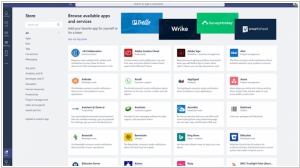
Microsoft Teams has released its most substantial update since its launch last year, focusing on enhancing the user experience with apps. The new features introduced in Microsoft Teams include Slack-like integrations, improved search and discovery capabilities, advanced commands, and more. For instance, users now have the ability to search for apps within the new app store, offering browsing options by category or searching by name, category, or integration type, such as Project Management or Business Intelligence. Similar to Slack, Microsoft Teams now provides an app directory, enabling users to easily find and utilize various work tools, ultimately enhancing collaboration within the workplace. This update demonstrates Microsoft Teams' commitment to delivering a comprehensive and efficient platform for users to seamlessly integrate and leverage their preferred apps.
2015. Atlassian acquired team chat Hall

Atlassian, the provider of services such as JIRA, Confluence, and the group chat tool HipChat, has made an acquisition by purchasing Hall, a group chat service designed for businesses. Both HipChat and Hall presently offer free starter plans that support an unlimited number of users within a team. For enhanced features, Hall charges $4 per user per month, while HipChat's plans start at $2 per user per month. However, HipChat surpasses Hall by offering more advanced functionalities like video chat and screen sharing. Through the acquisition of Hall, Atlassian gains access to new users primarily in financial services, real estate, professional services, and related industries, where Hall has established its niche since its launch in 2011. As part of the transition, Hall will cease operations on June 30th, but existing Hall users now have the option to migrate their users, messages, and files to HipChat.

